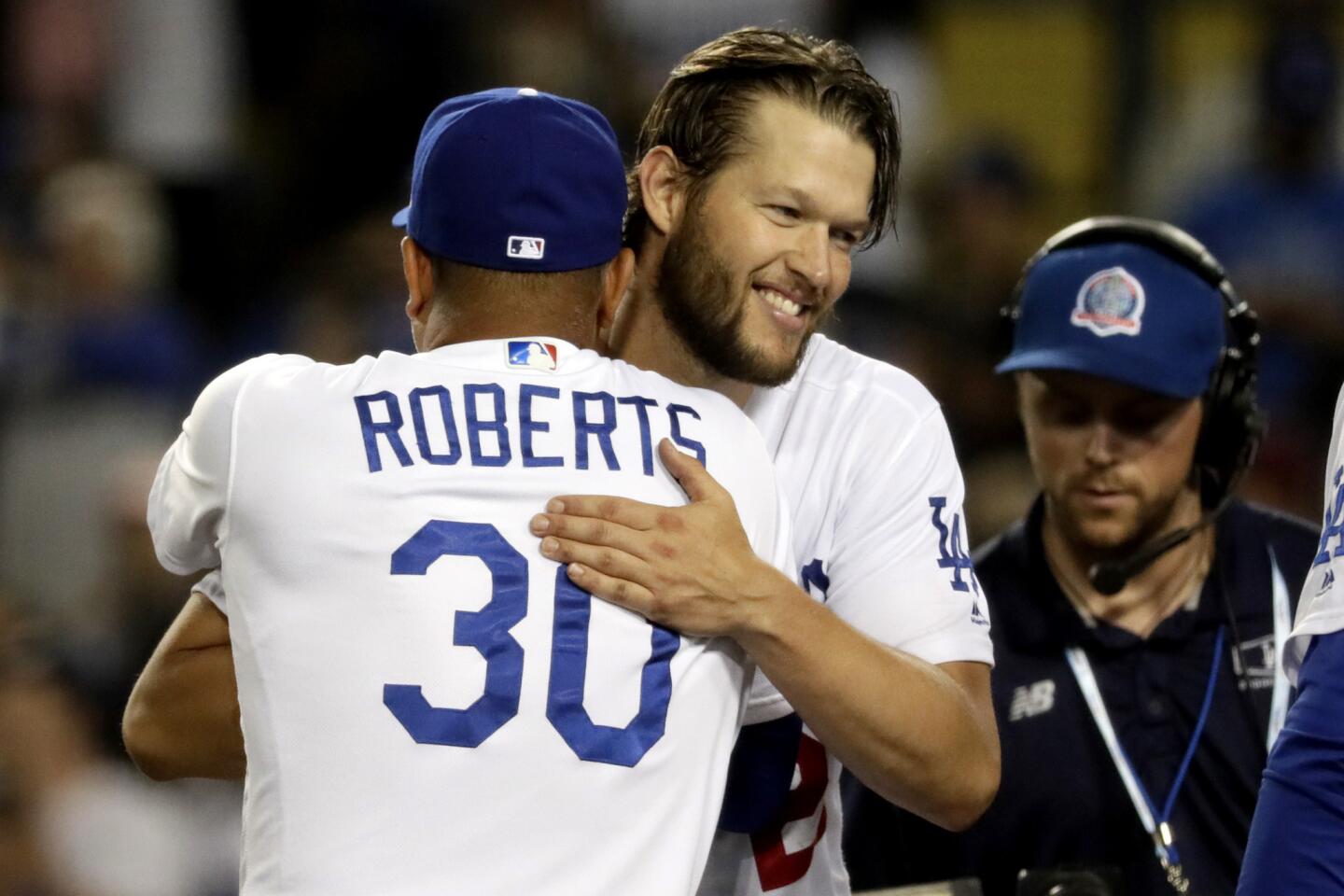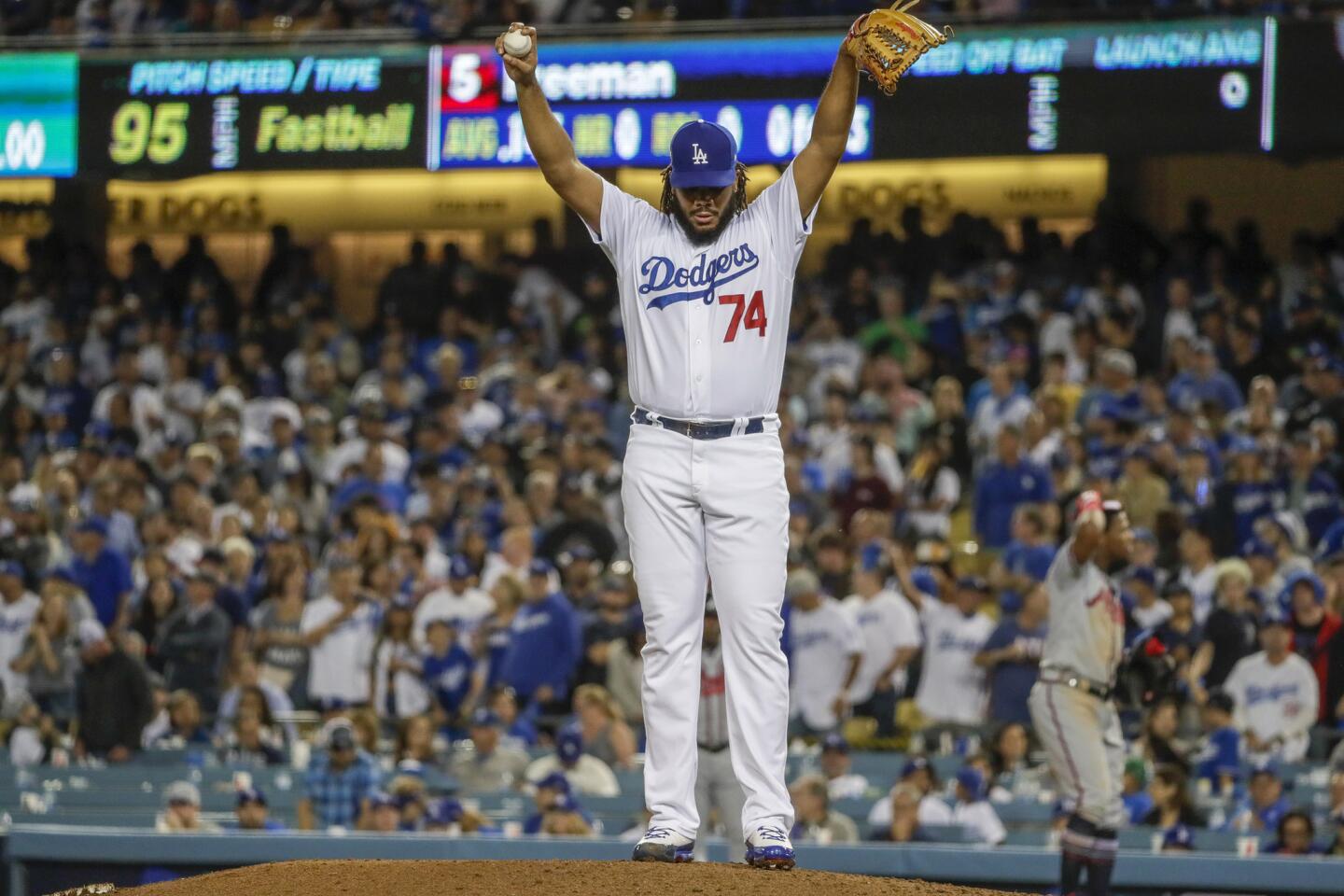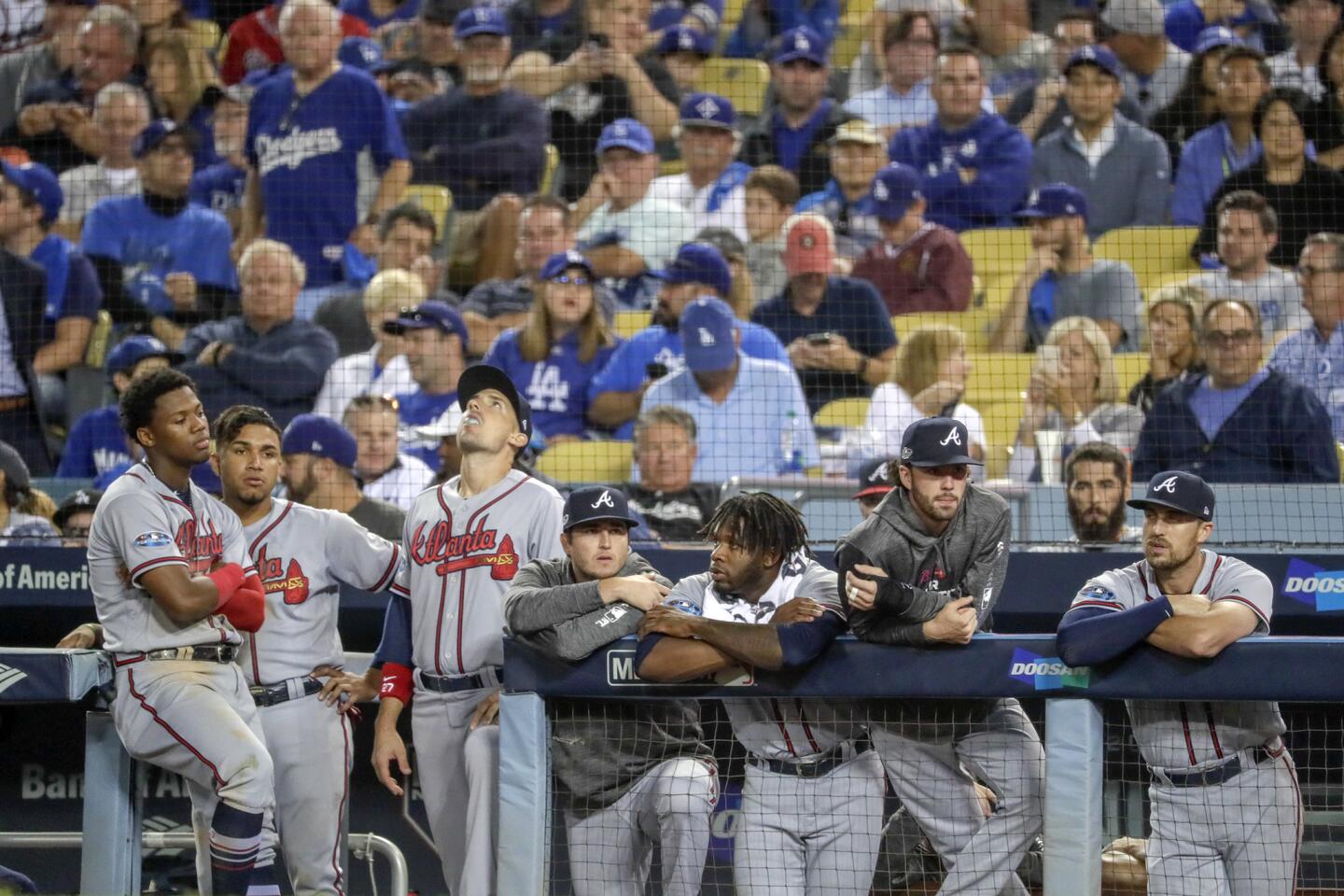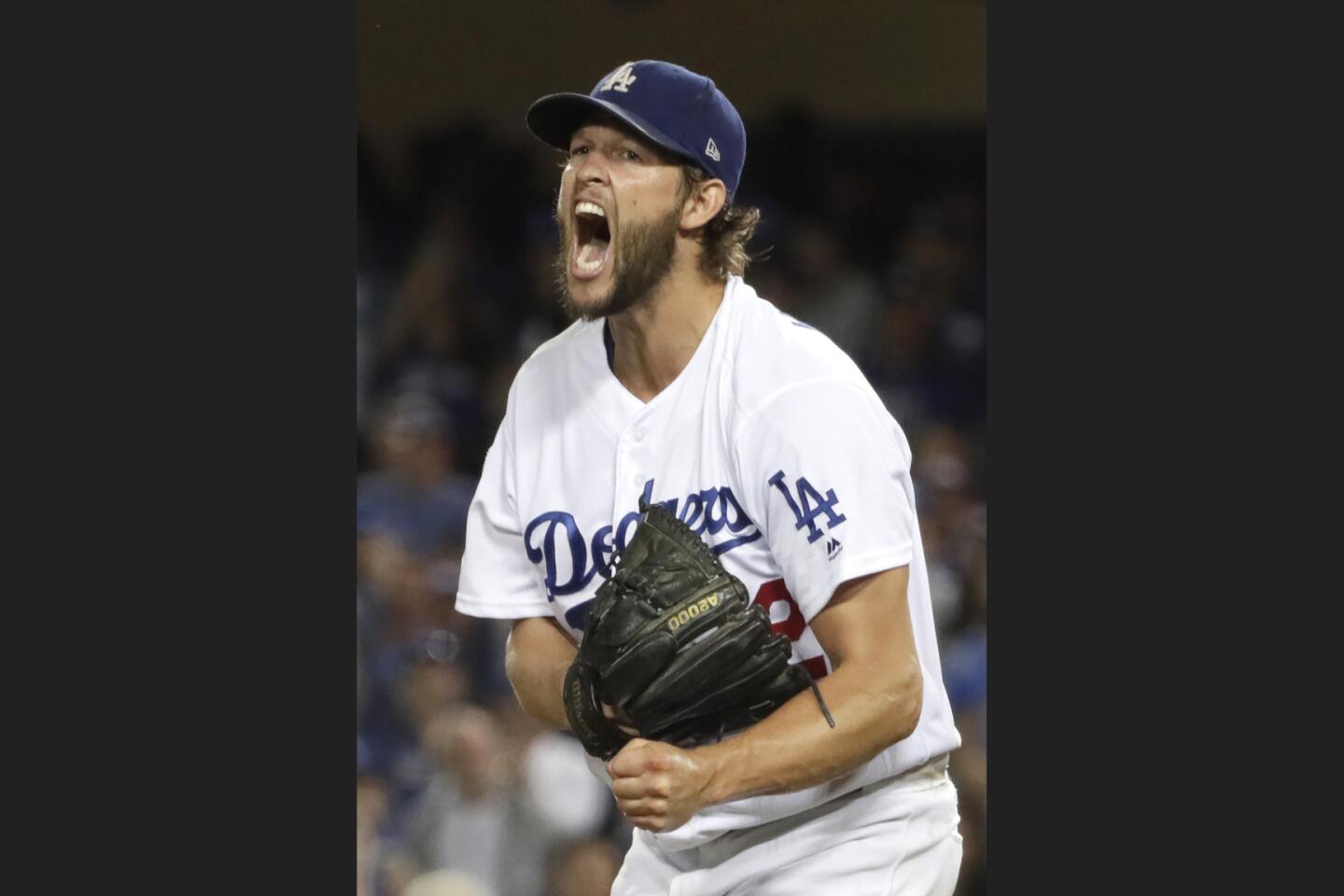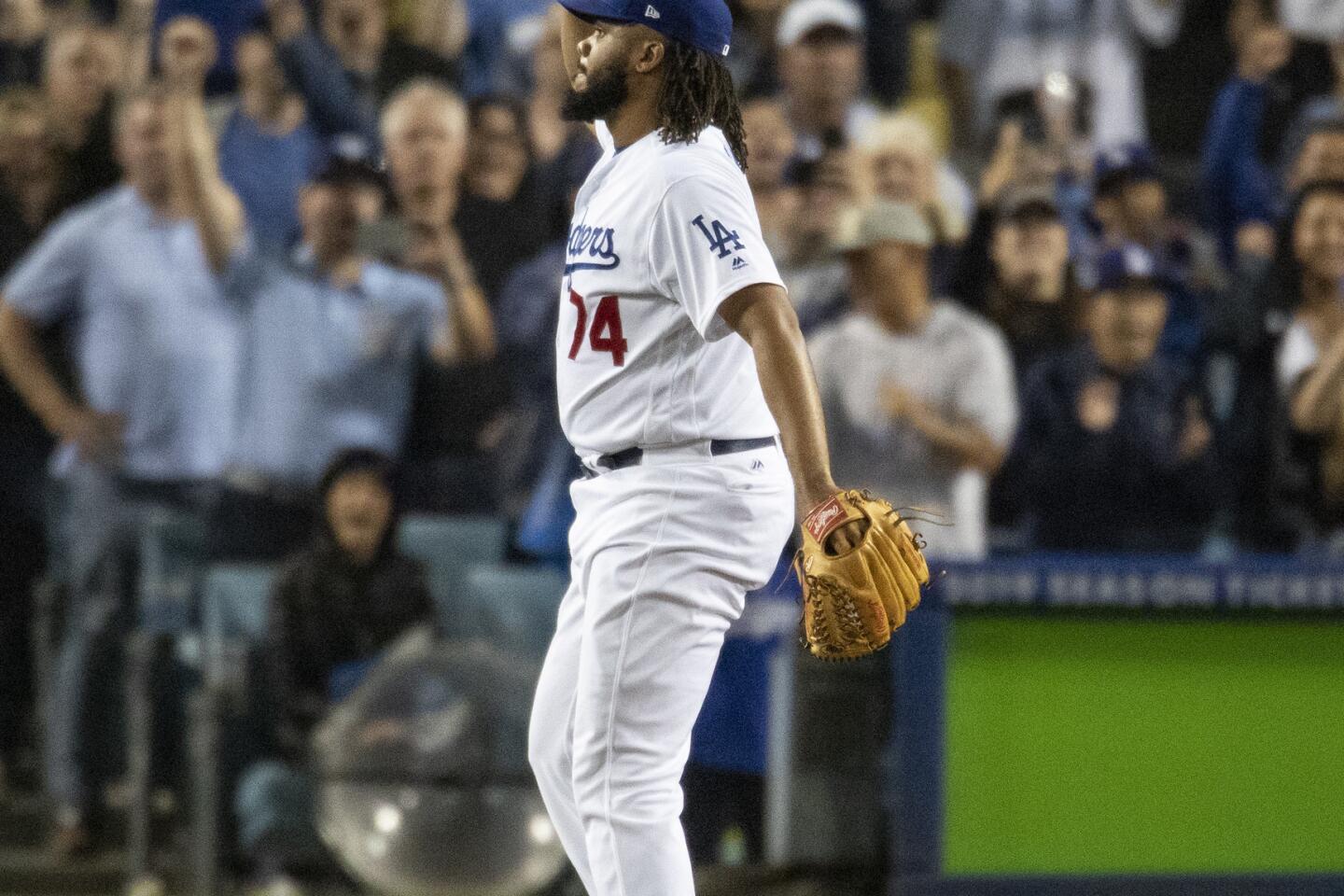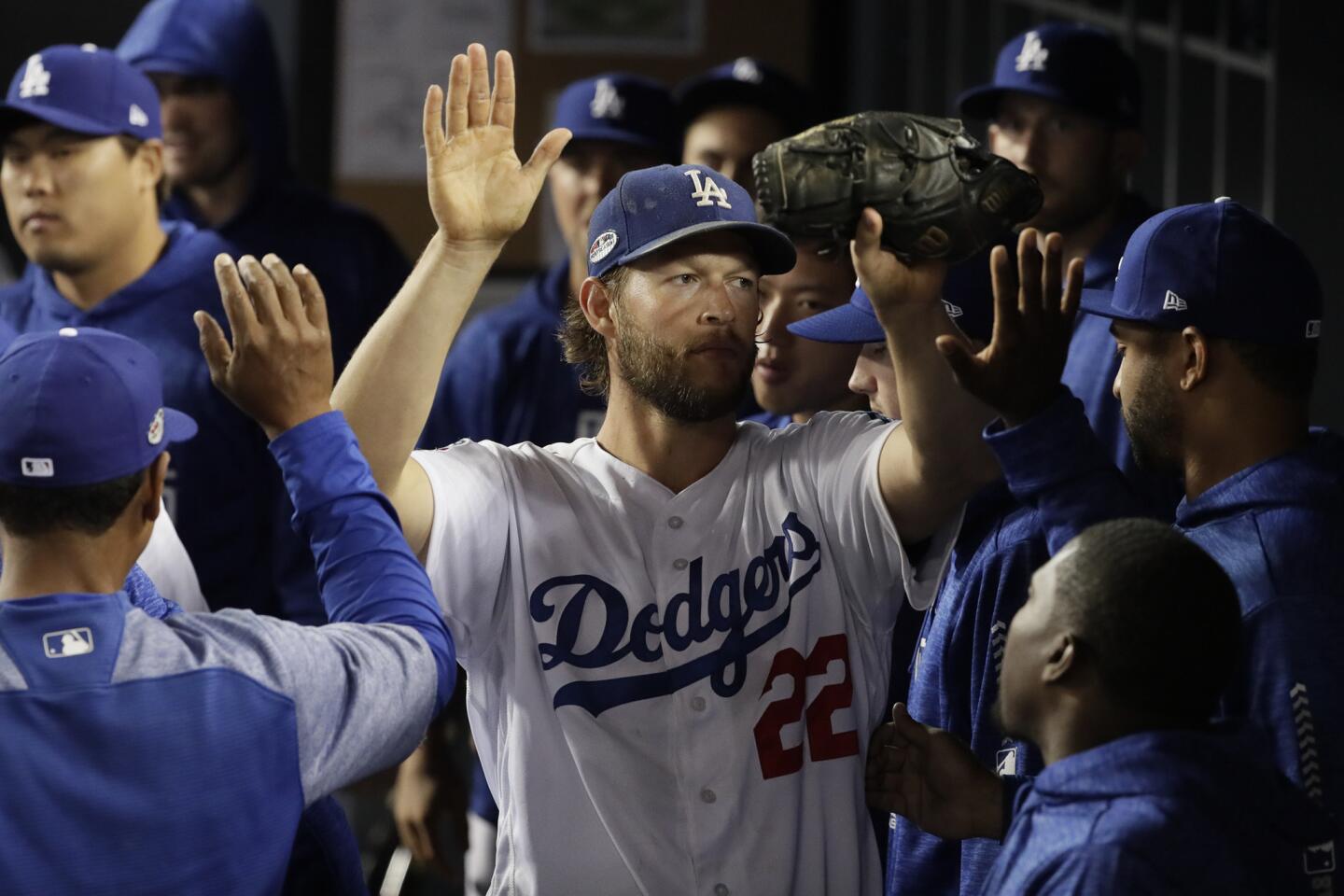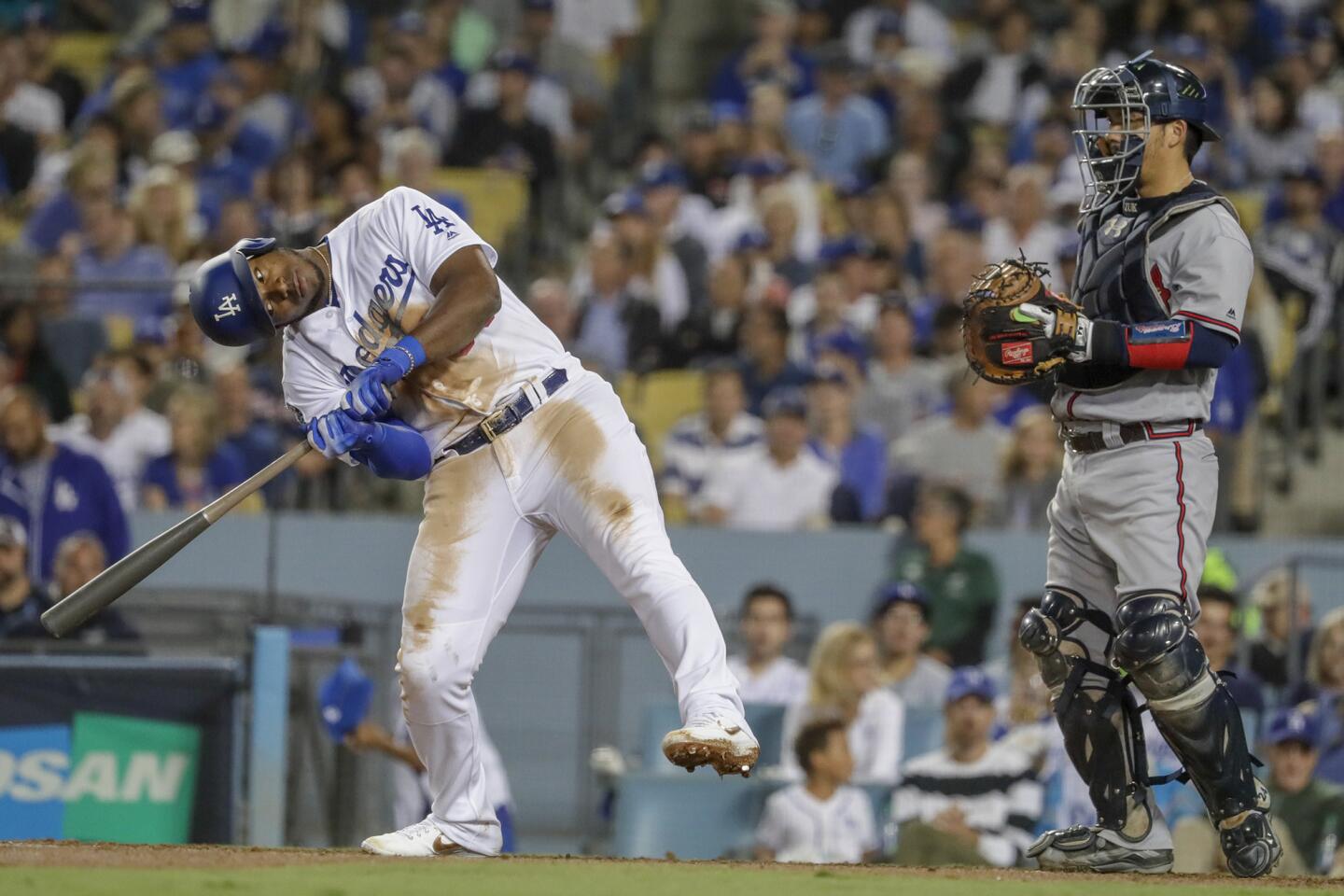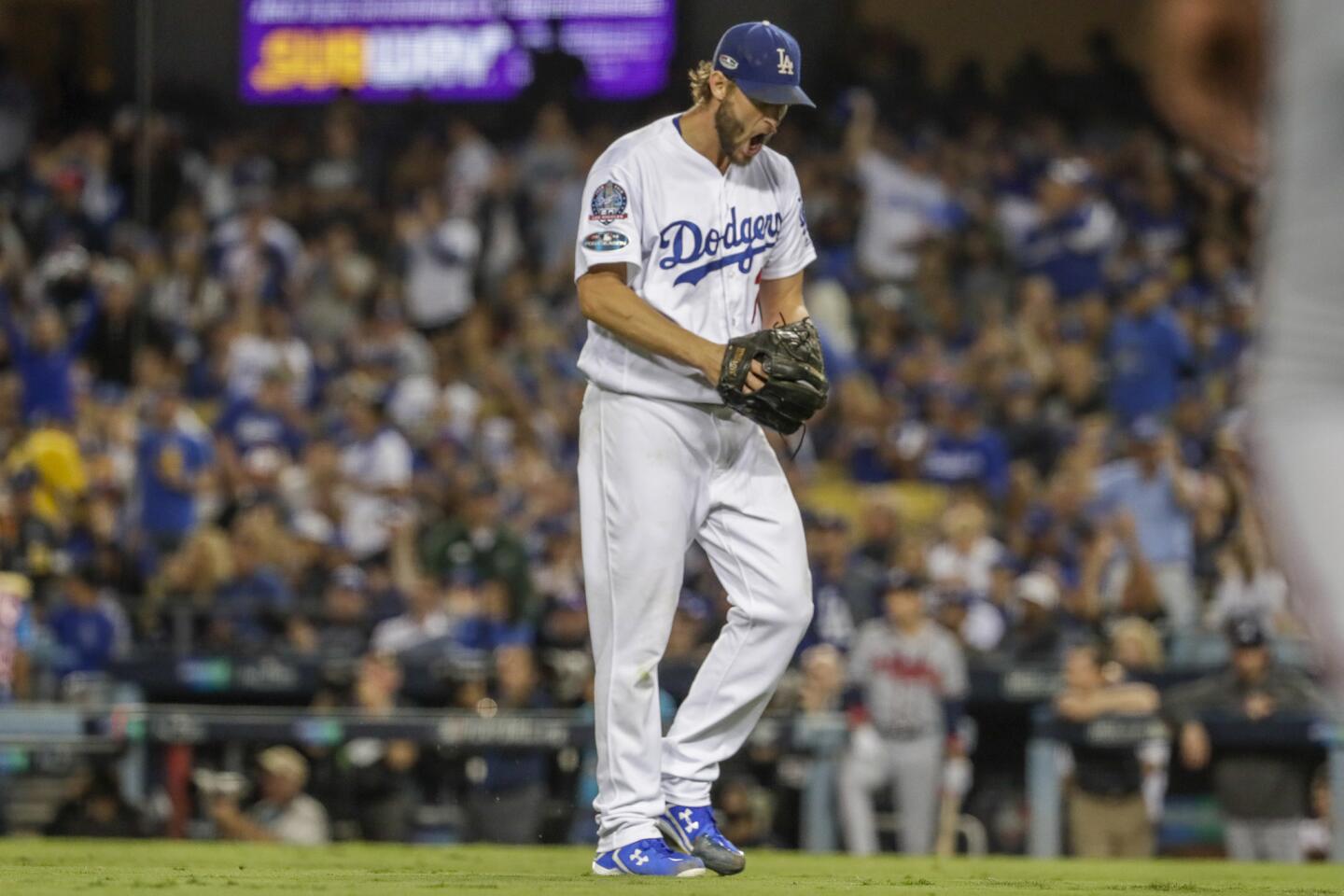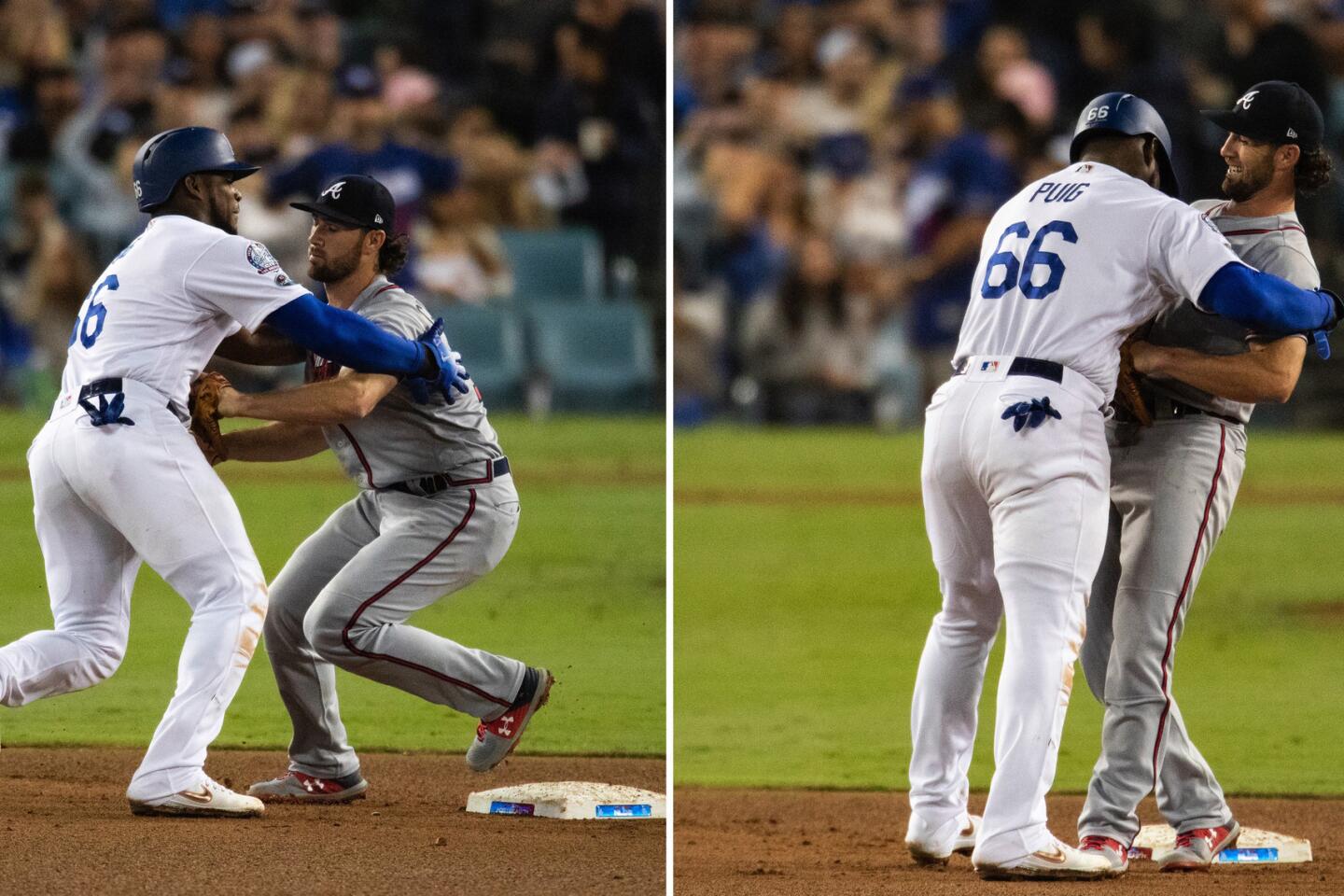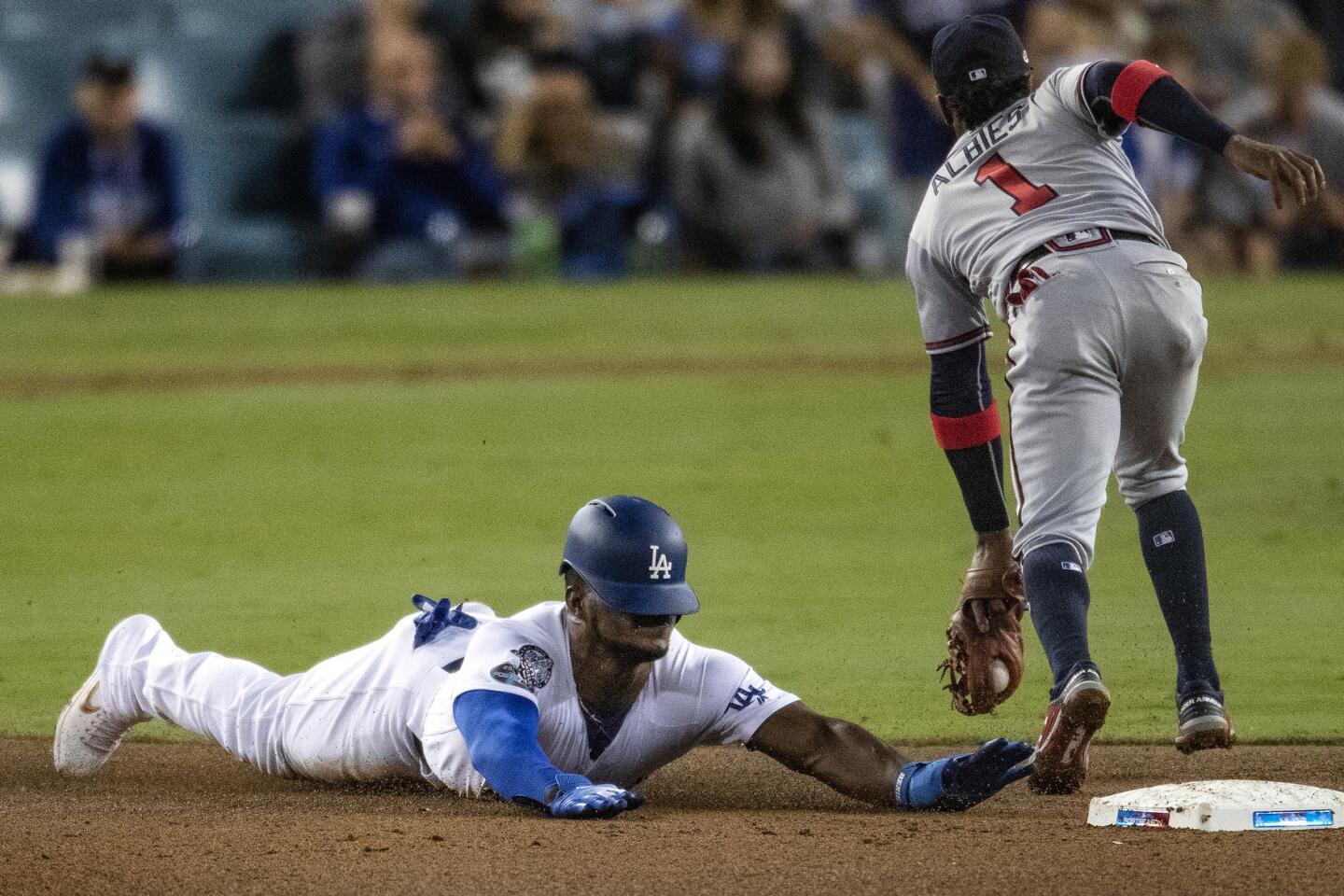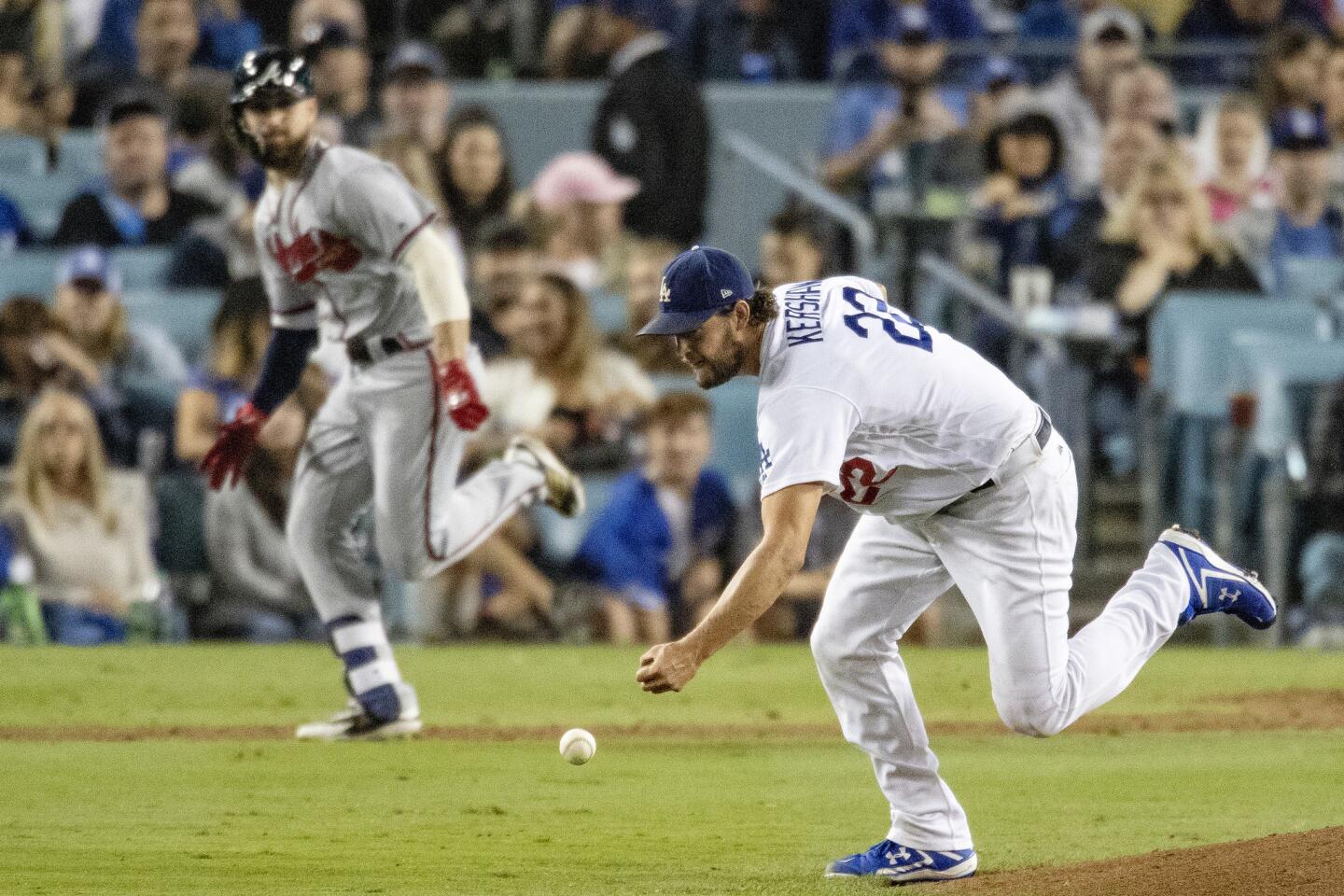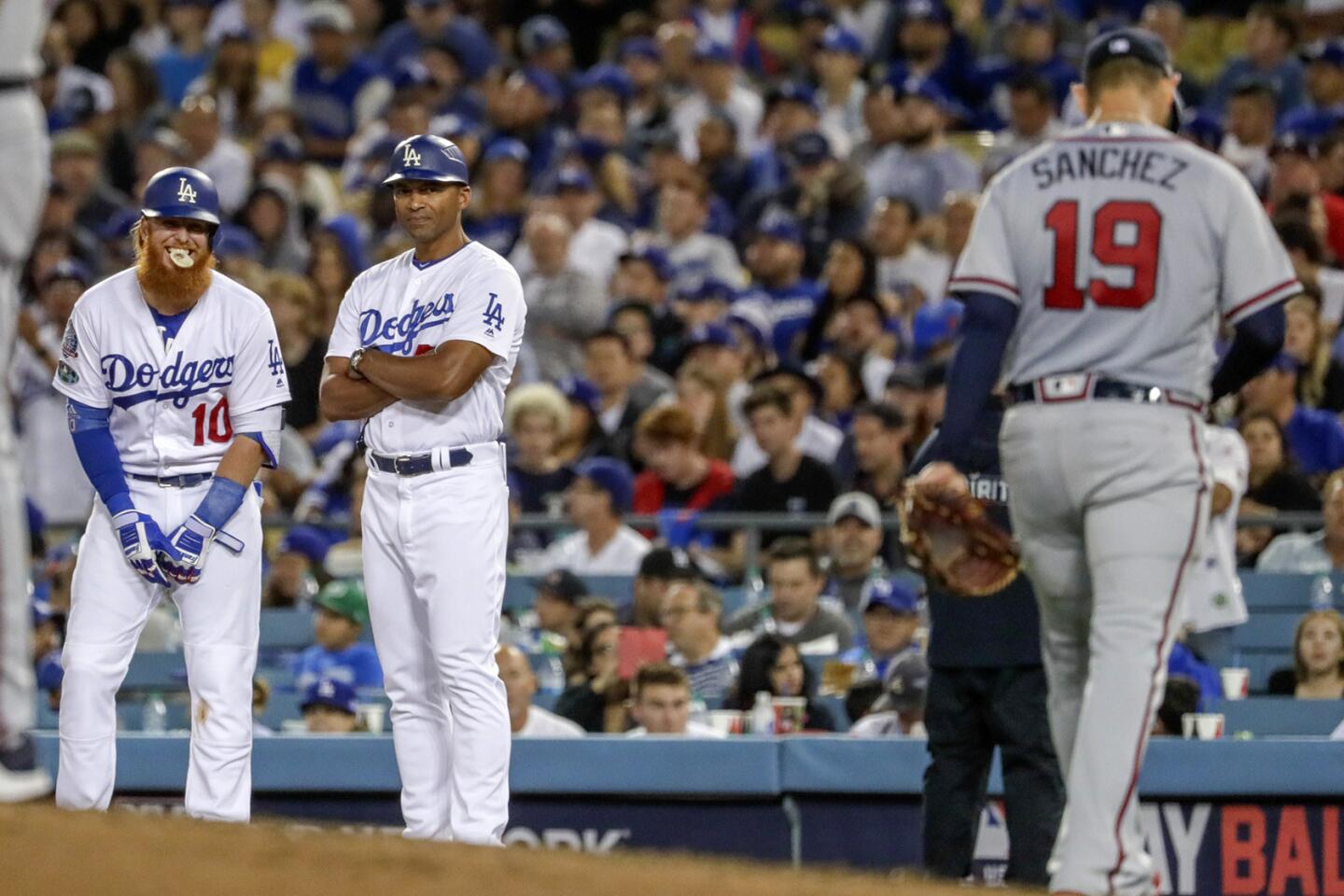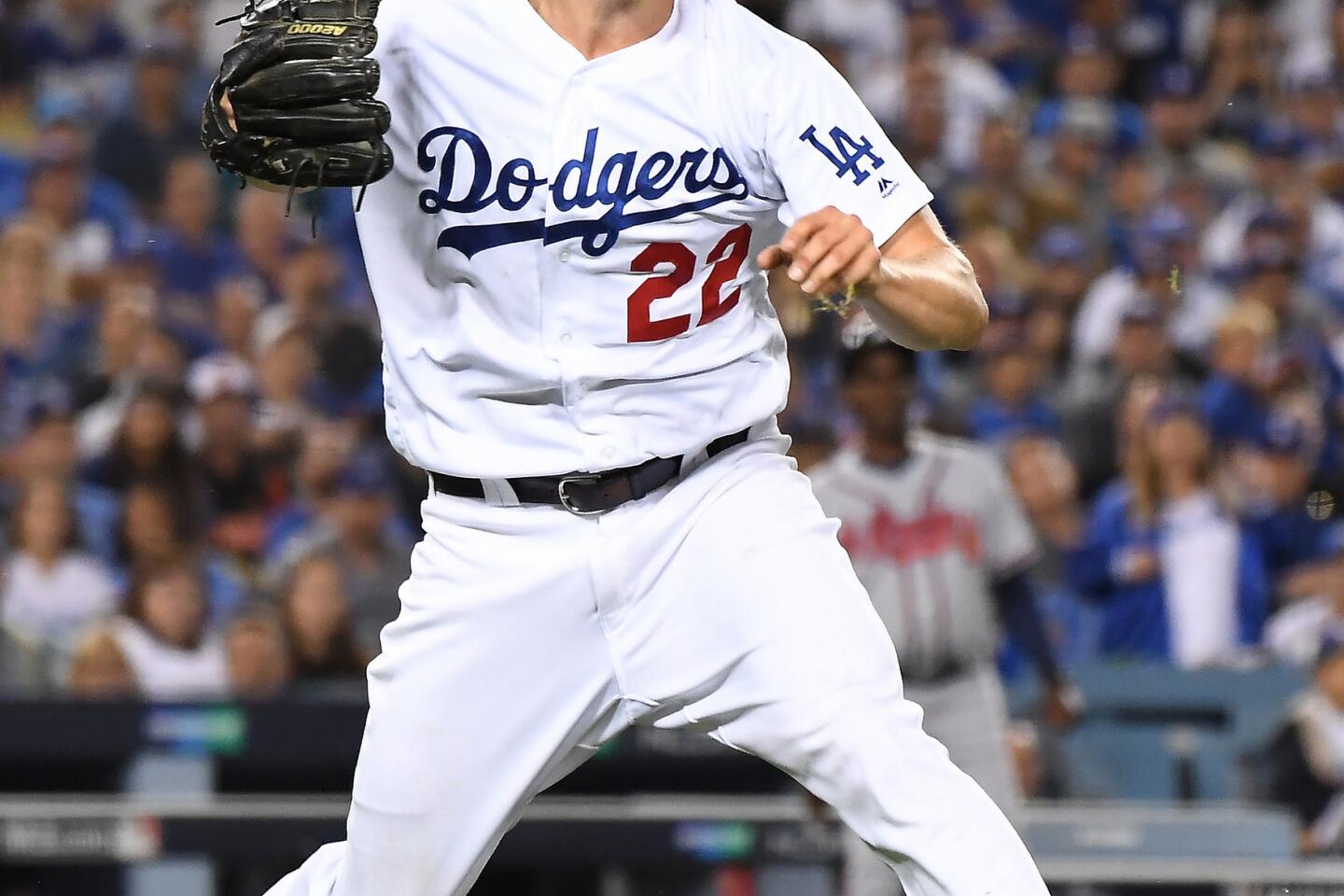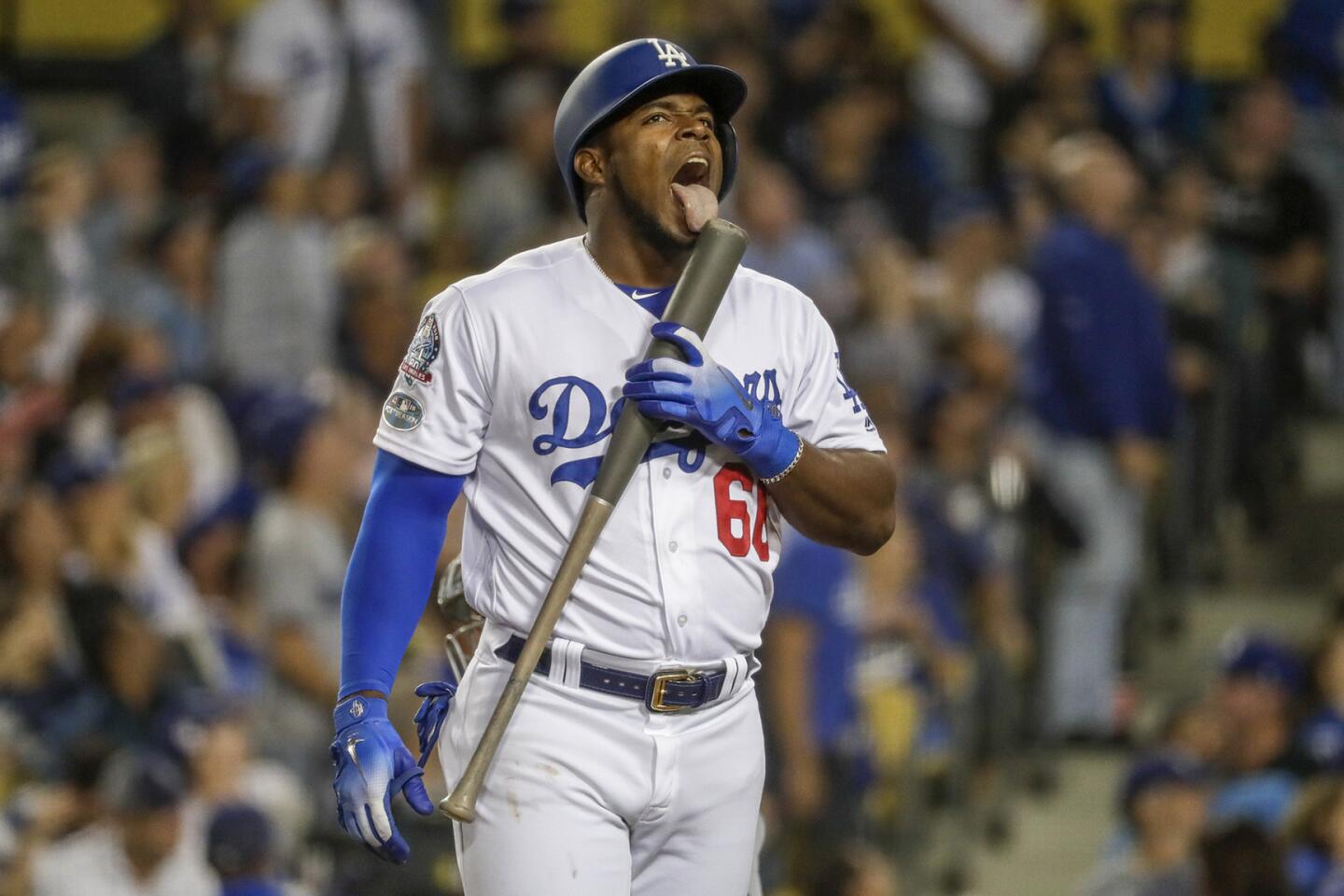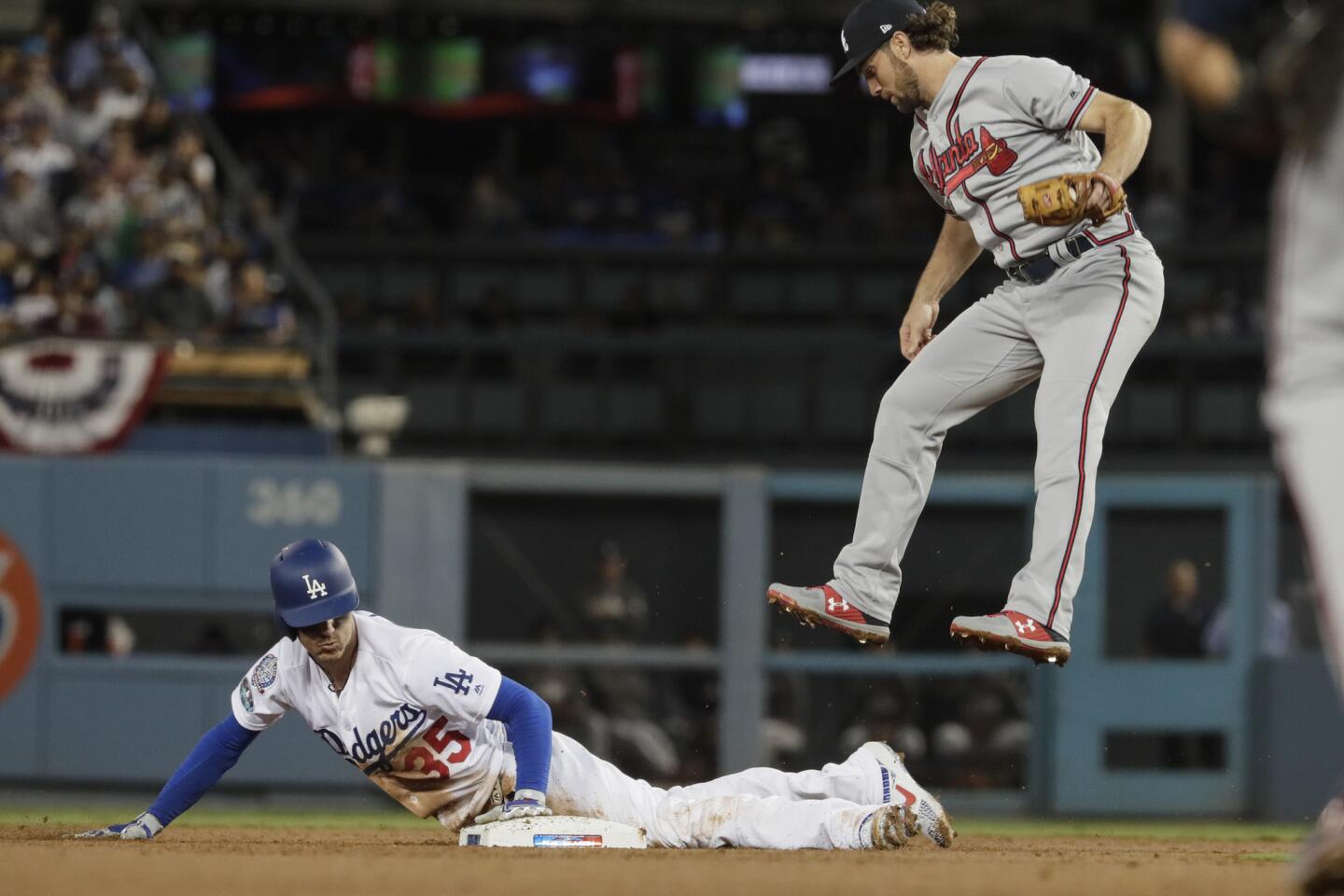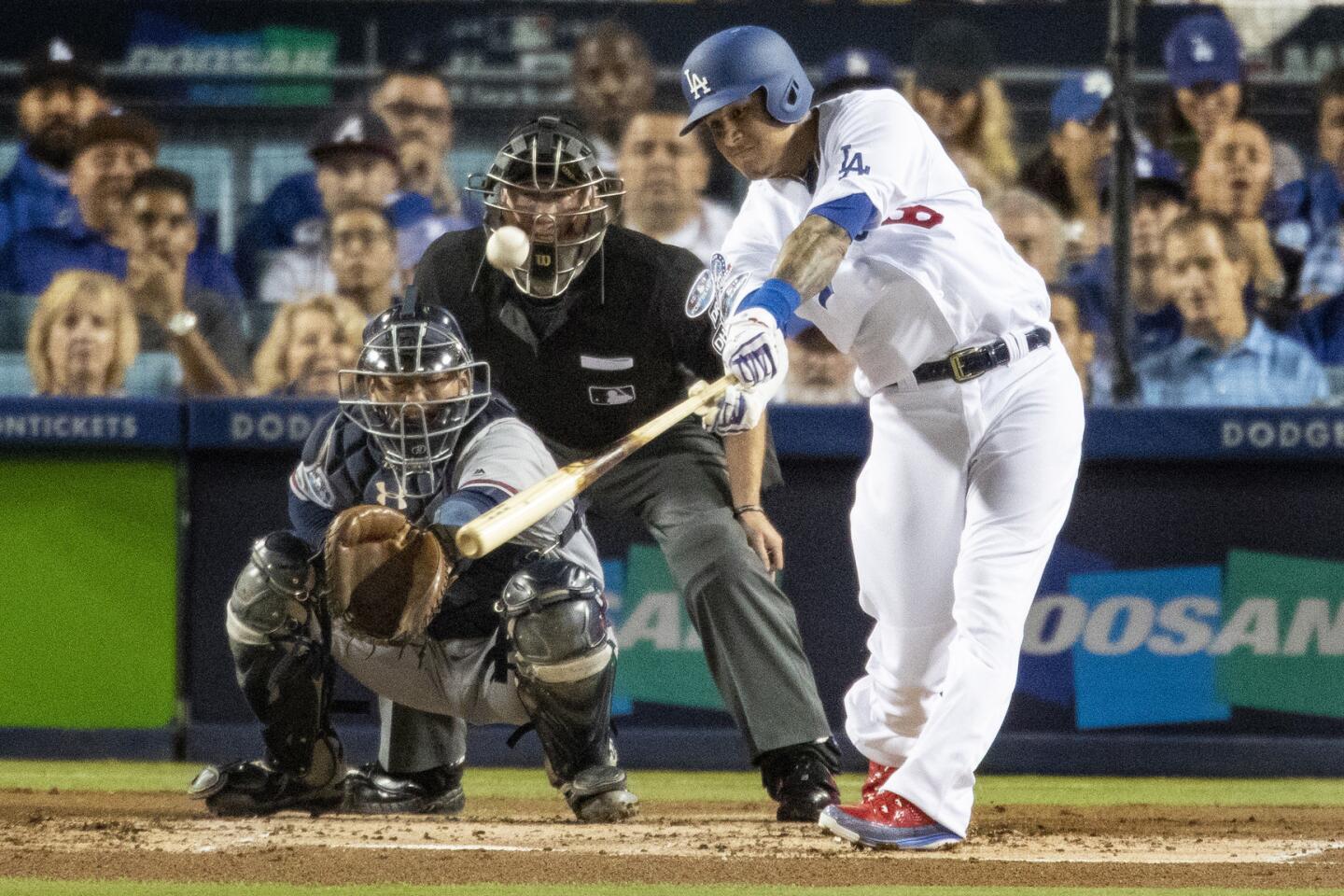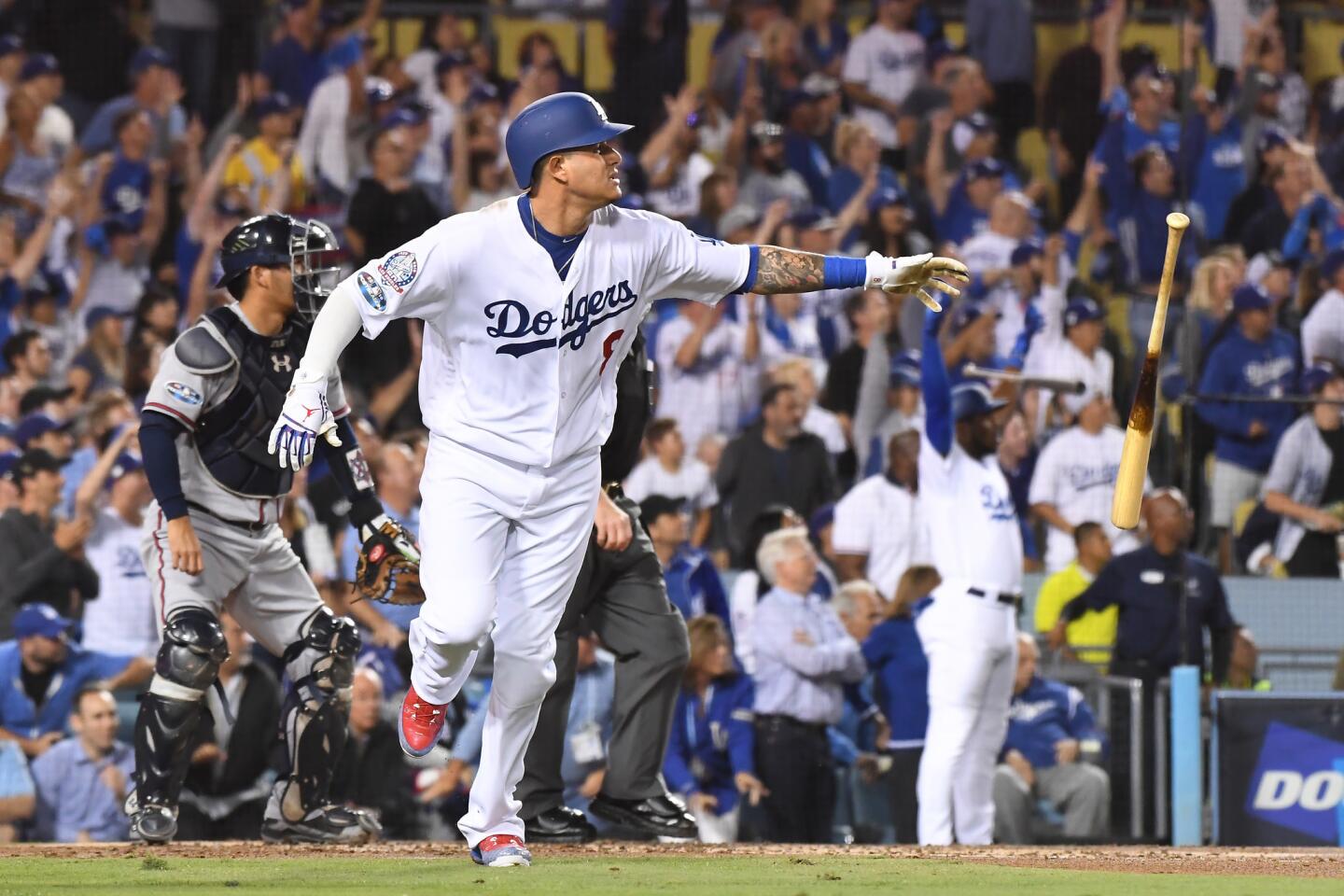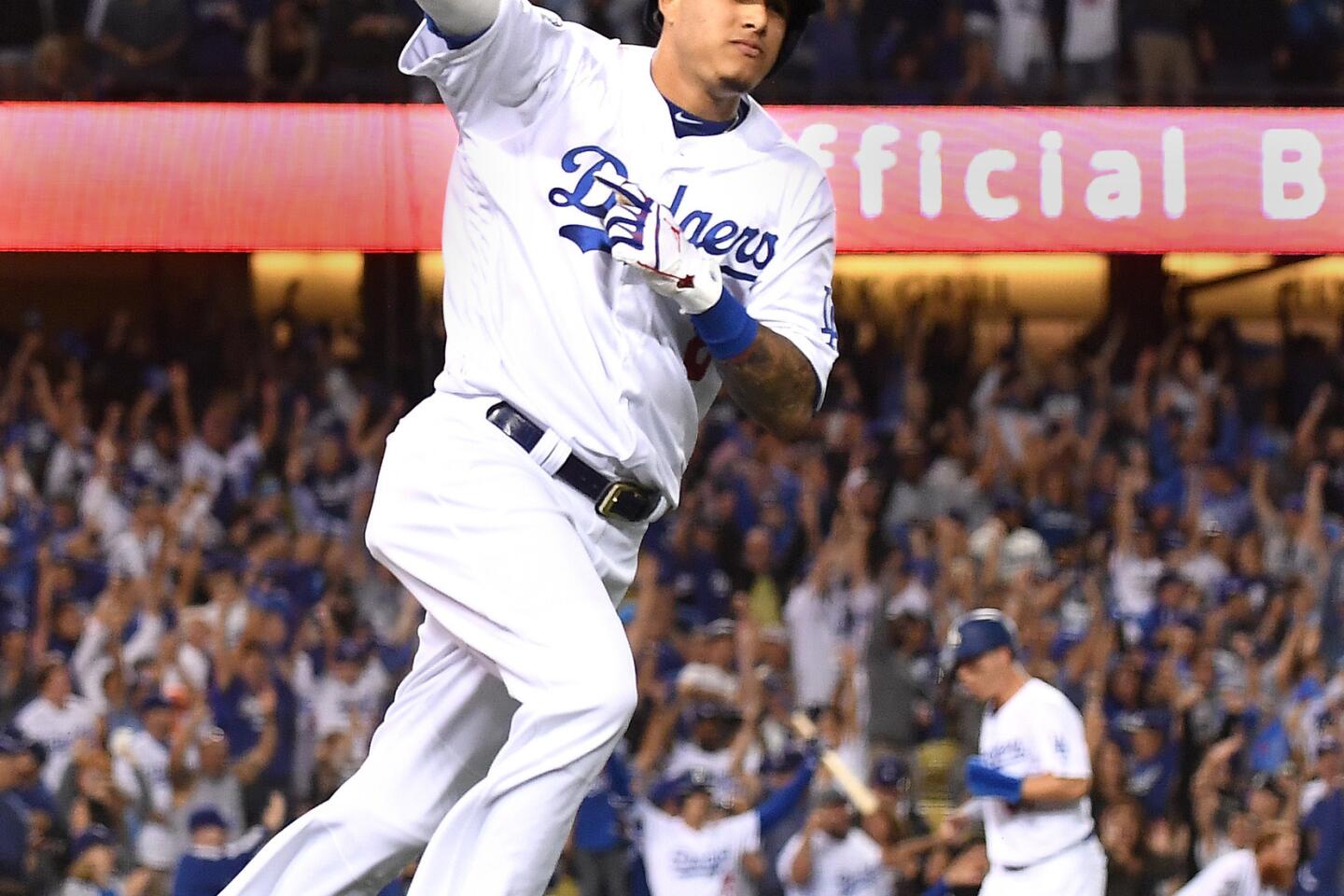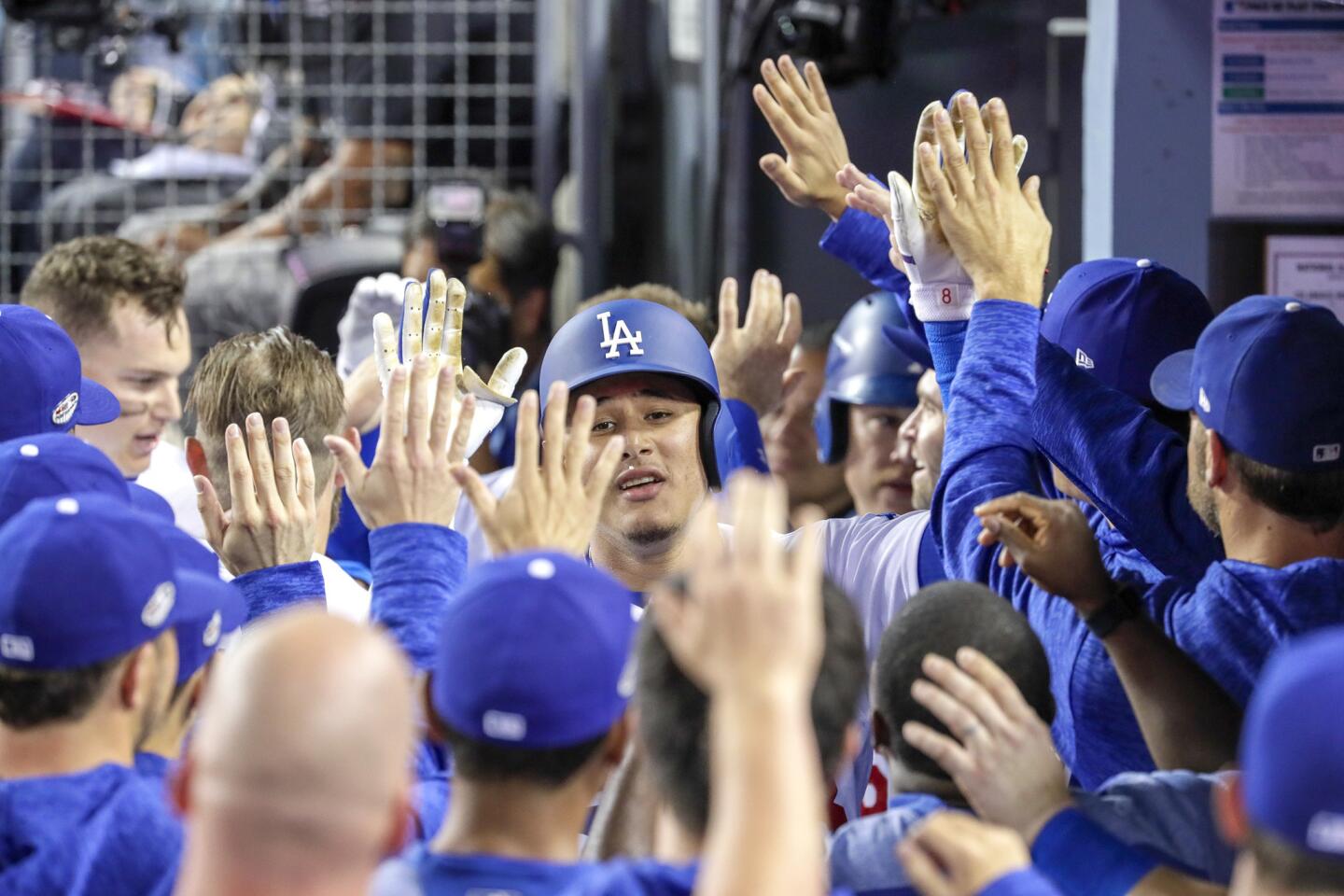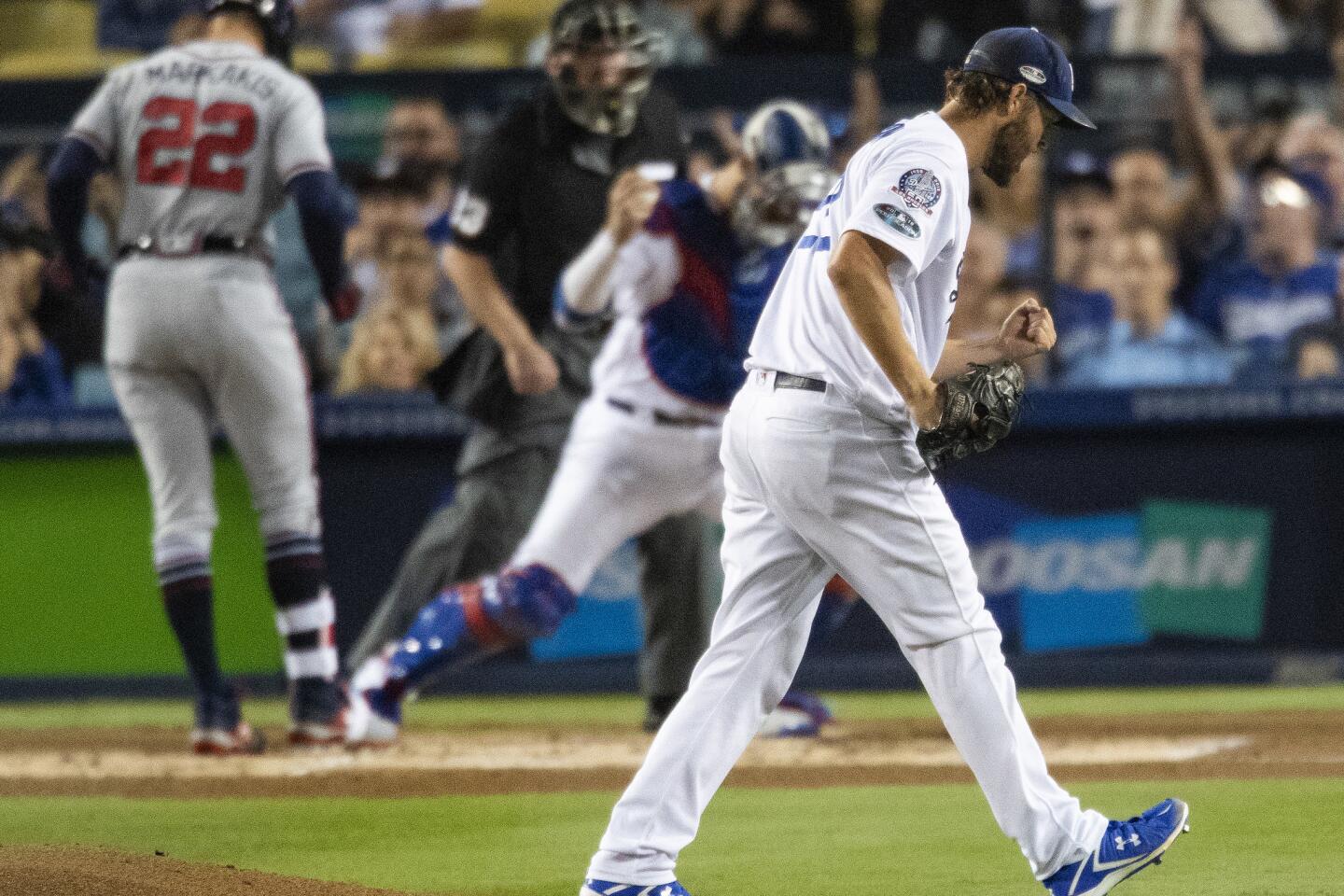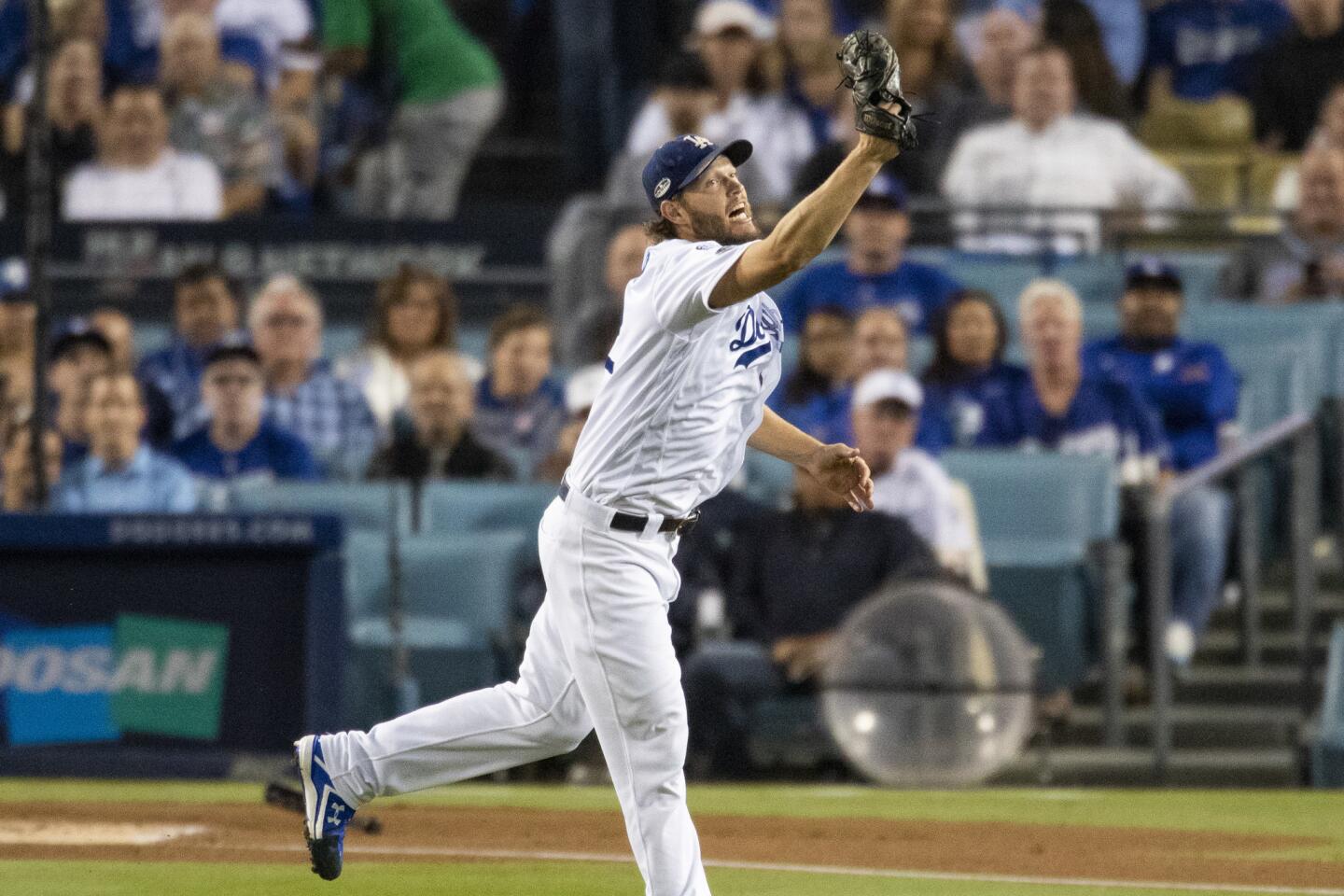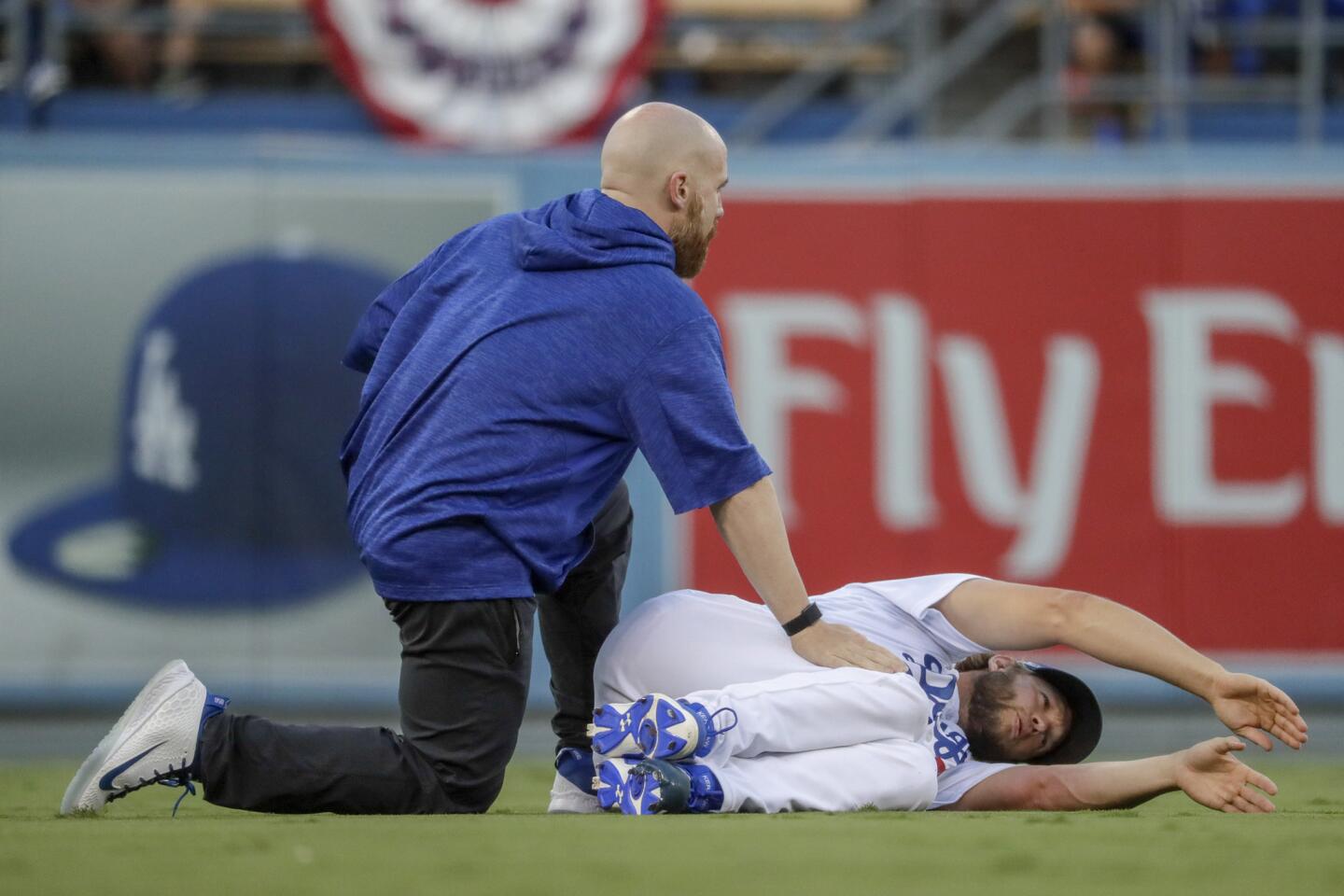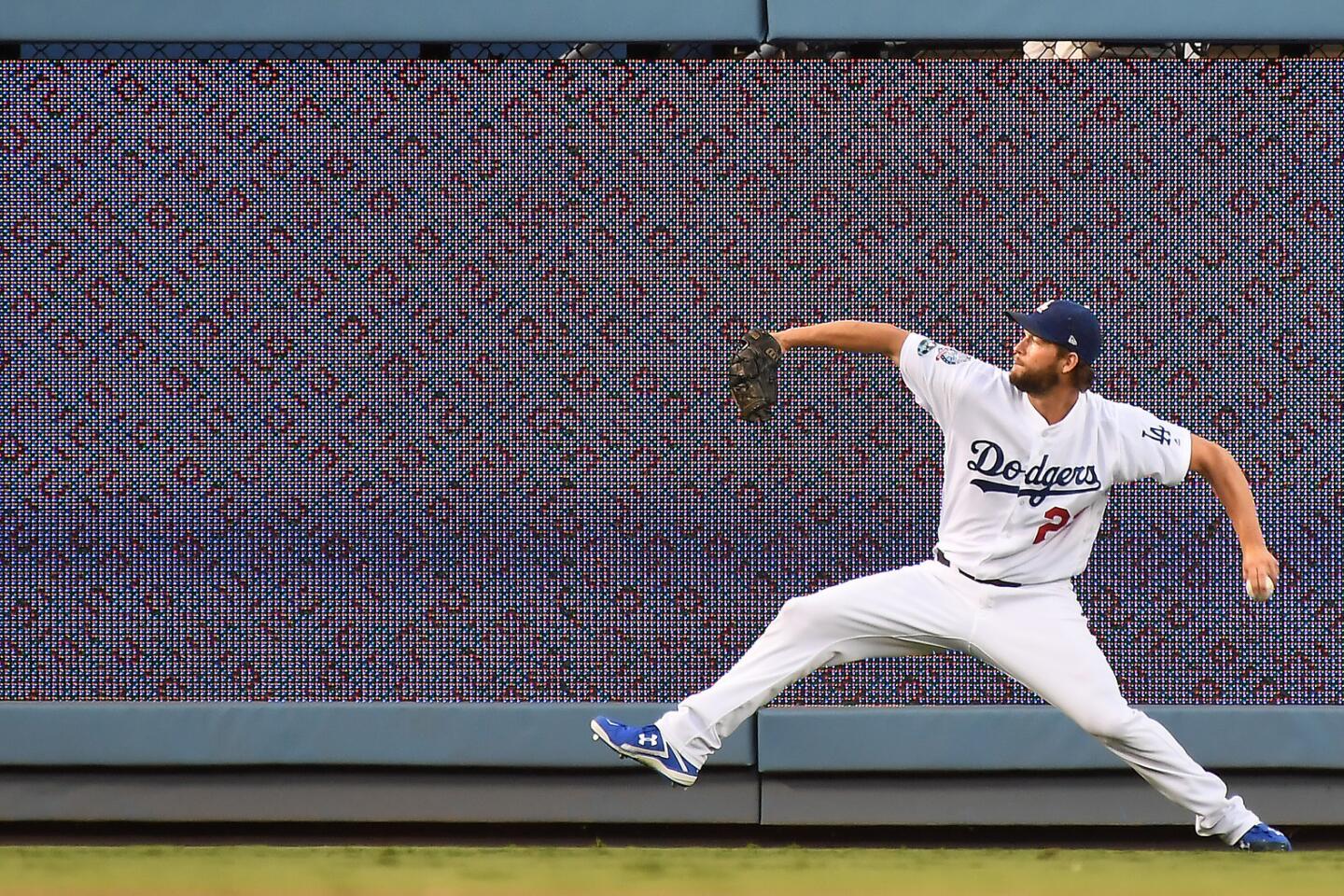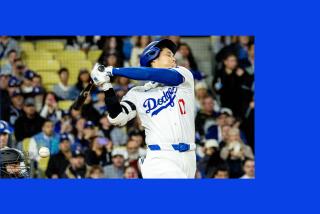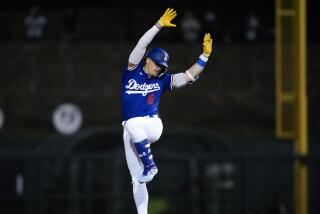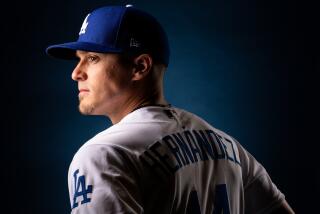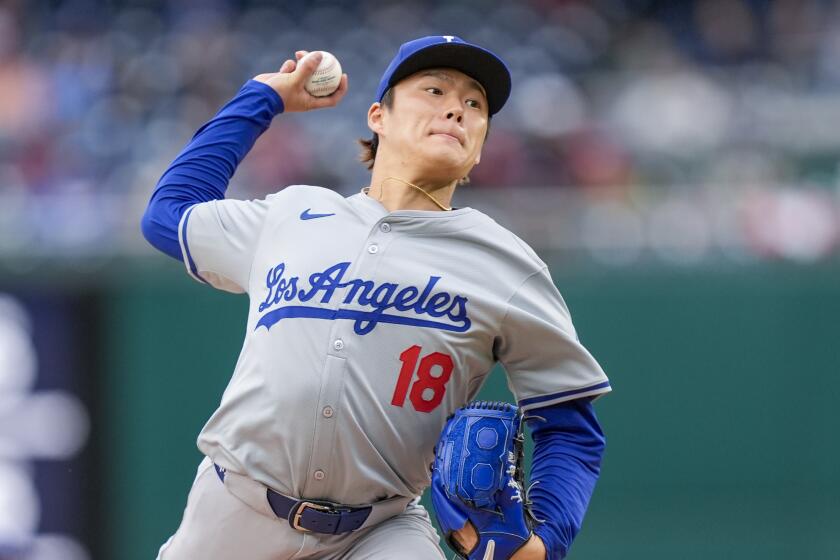Kiké Hernández takes his place among the Dodgers leaders, if not superstars
While the Dodgers celebrated a sixth straight National League West title last Monday that appeared improbable just a few days earlier, manager Dave Roberts heaped lofty praise on one of the players who powered their September push.
“When you’re talking about MVP of the ballclub,” Roberts said, “he’s right there at the top of the conversation.”
Stars, budding and blossomed, cram the Dodgers’ expensive roster. Clayton Kershaw. Kenley Jansen. Justin Turner. Manny Machado. Walker Buehler. The list fits the setting. But Roberts wasn’t referring to one of the 13 players on his then-40-man roster who have appeared in at least one All-Star game. He was complimenting Enrique Hernández, the spirited glove-first super utilityman who morphed into an offensive force over the previous five weeks.
Hernández continued tormenting pitchers in Game 2 of the National League Division Series against the Atlanta Braves on Friday at Dodger Stadium, belting a solo home run off right-hander Brad Brach and drawing a walk. He then went 0 for 3 in Game 2 — the first time he went hitless playing an entire game since Sept. 12 — but is still batting .366 with four home runs and a 1.041 on-base-plus-slugging percentage in 32 games since Aug. 26, which he began batting .222 with a .738 OPS.
The breakout has elevated Hernández — at least temporarily — to a title that had eluded him as a major leaguer: everyday player.
“I think for like three years now everybody knows what I can do with my glove and my arm or whatever,” the 27-year-old Hernández said before Game 2. “But it was about putting it together at the plate. And the last two or three years I’ve been fighting myself, fighting my brain … wanting to play every day really bad and not really focusing on the big picture … and you know, with the years with failure, you learn a lot.”
Long limited to starts against left-handers, Hernández is mashing righties too. He’s walked as much as he’s struck out (14 times each) and accumulated 10 multi-hit games in his last 28 starts while playing seven positions during his torrid stretch, one Roberts attributed to mechanical and approach adjustments Hernández has implemented.
“There’s a commitment to using the big part of the field,” Roberts said. “And also, just really appreciating the value of staying in the strike zone, and not just always trying to slug. … The mechanical piece, to be able to stay on the baseball when the ball is going away from you — typically the secondary stuff — and to not try to slug, which allows you to see the ball just a tick longer. And I think those three components right there have really helped him be the player he is.”
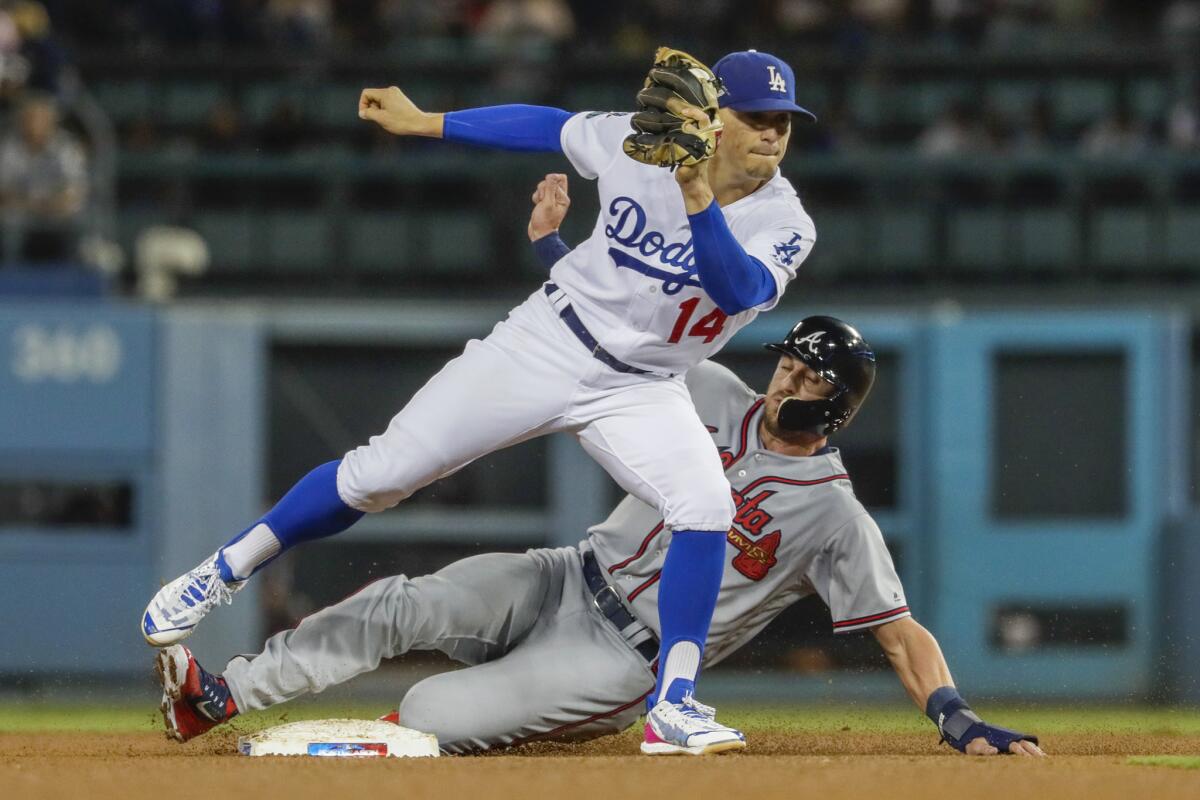
When Hernández was a minor leaguer in the Houston Astros’ organization in 2014 while trying to figure out how he could cement a place at baseball’s highest level, he made a decision. He wasn’t just a second baseman anymore. He couldn’t be. The Astros employed a guy named Jose Altuve and he wasn’t going anywhere. Hernández was stuck in triple-A. So he started playing a different position every day. Shortstop. Third base. Center field. He rotated through them every week, his athleticism rendering the experiment a success. The constant movement continued when he was traded to the Miami Marlins that summer. Versatility, he knew, was his ticket to a steady spot in the majors.
He reached the big leagues that season with both the Astros and Marlins, appearing in games at every position but pitcher, catcher and first base. He was traded to the Dodgers that winter and immediately solidified his role as a super utilityman in the big leagues while batting .307 with an .836 on-base-plus-slugging percentage in 76 games.
Struggles at the plate followed. Hernández batted .190 with a .607 OPS in 2016. He wasn’t much better last season, when he hit .215 and compiled a .729 OPS. He supplied enough value with his speed, glove and positional flexibility to stay in the majors, but he understood his margin for error was thin.
“It has helped me establish myself in the major leagues, definitely, because the last two years, I haven’t produced like I can produce at the plate,” Hernández said in Spanish. “If it wasn’t for my defense and versatility, I would’ve been in the minor leagues again.”
Hernández was speaking to the media at a podium at Dodger Stadium before Game 2 — an assignment reserved for one prominent position player from each team before every postseason game. It was, in a way, a nod to his recent ascent. There was no doubt about his status Friday. Hernández, who clubbed a career-high 21 home runs during the regular season, was in the Dodgers’ lineup again, batting seventh and playing second base.
Hernández has batted leadoff and played center field against left-handers recently, but Roberts indicated the Dodgers’ starting lineup would look different than its recent configuration against southpaws for Game 3 on Sunday opposite left-hander Sean Newcomb because the Braves have right-handed starters Kevin Gausman and Julio Teheran available in the bullpen.
“We might have a tweak or two,” Roberts said.
Regardless, Hernández will be in the lineup.The platoon-loyal Dodgers spent September fielding — besides a few constants — two different teams depending on the opposing starting pitcher. Hernández emerged as one of those few everyday constants even after the Dodgers acquired Brian Dozier, a right-handed-hitting second baseman, at the trade deadline.
Hernández has been a star-level performer on a team filled with them. He credited Chase Utley — his team dad — for unearthing his success by helping him develop his work ethic and maturity, but the talent was there. It was on display when he slugged three home runs against the Chicago Cubs in Game 5 of the NLCS a year ago, when his playing time was less consistent. It took three years, but he’s a valuable everyday presence now, one the Dodgers will depend on for as long as this playoff run goes.
“At first, it was whatever to get to the major leagues,” Hernández said. “And then it was whatever to help establish myself. And now I’m used to the role. I’m still doing it. At the end of the day I just want to be in the lineup. I want to play every day, whether it’s playing one position or a few positions. I don’t have a problem with that. As long as I’m in the lineup every day.”
Twitter: @jorgecastillo
More to Read
Are you a true-blue fan?
Get our Dodgers Dugout newsletter for insights, news and much more.
You may occasionally receive promotional content from the Los Angeles Times.

